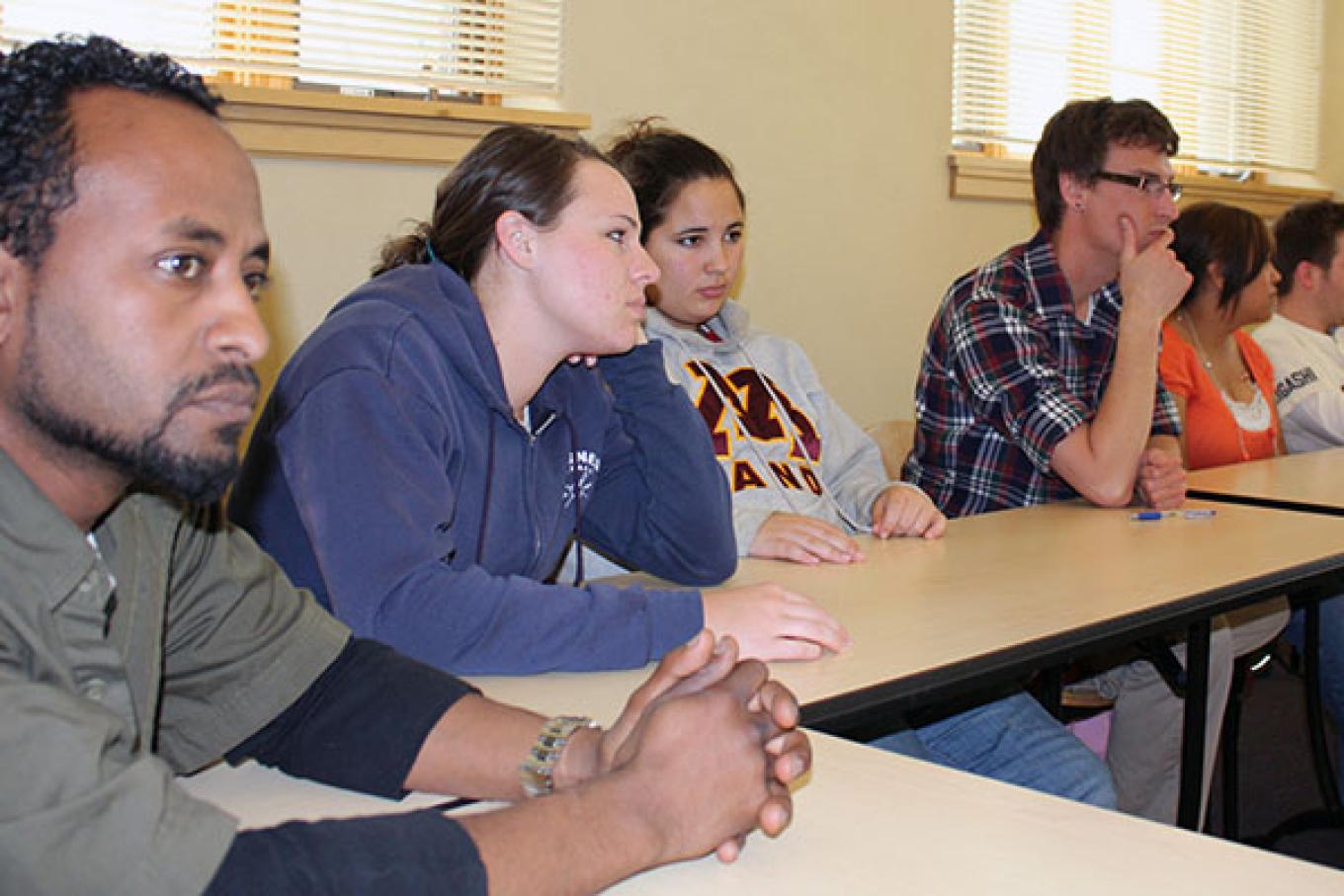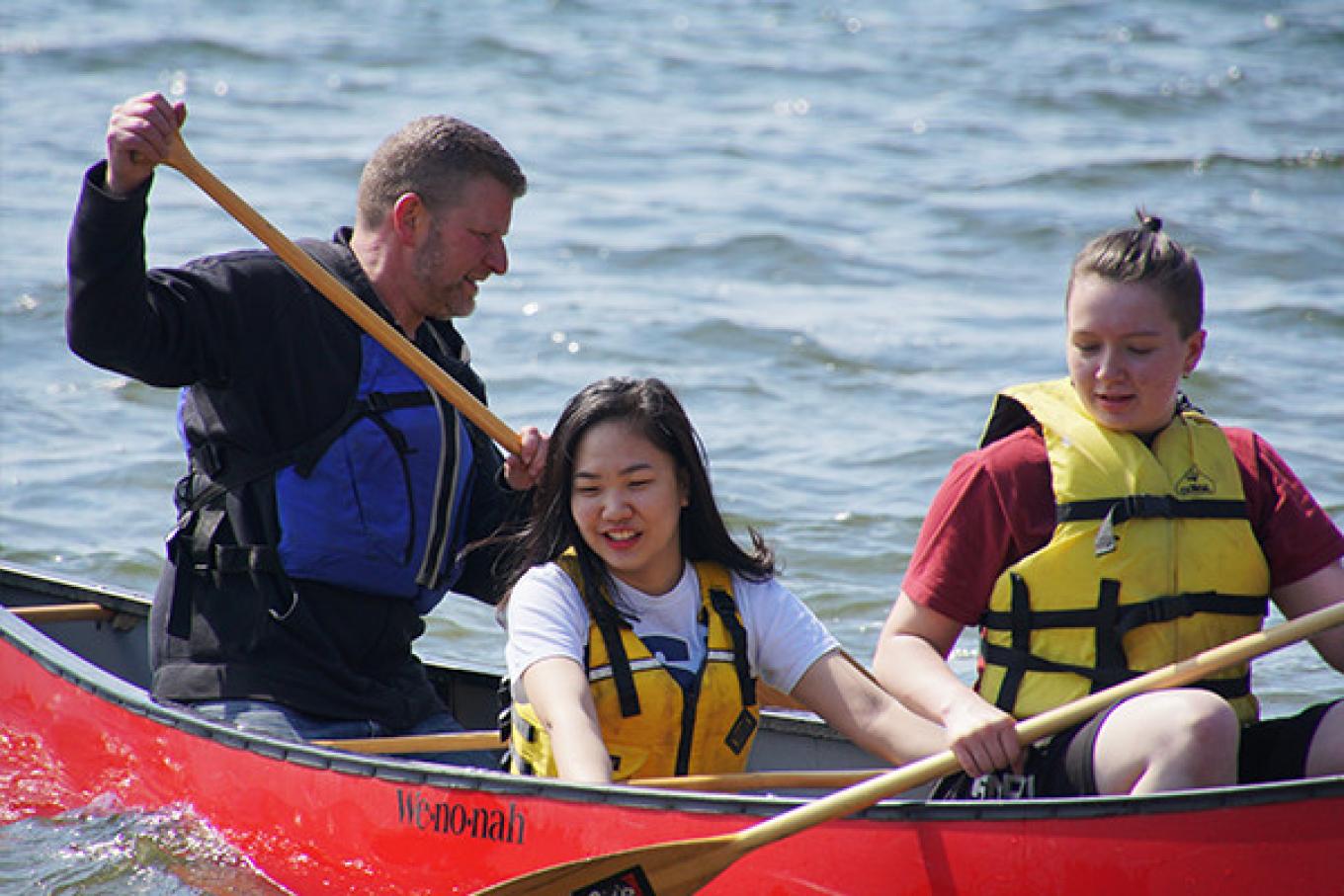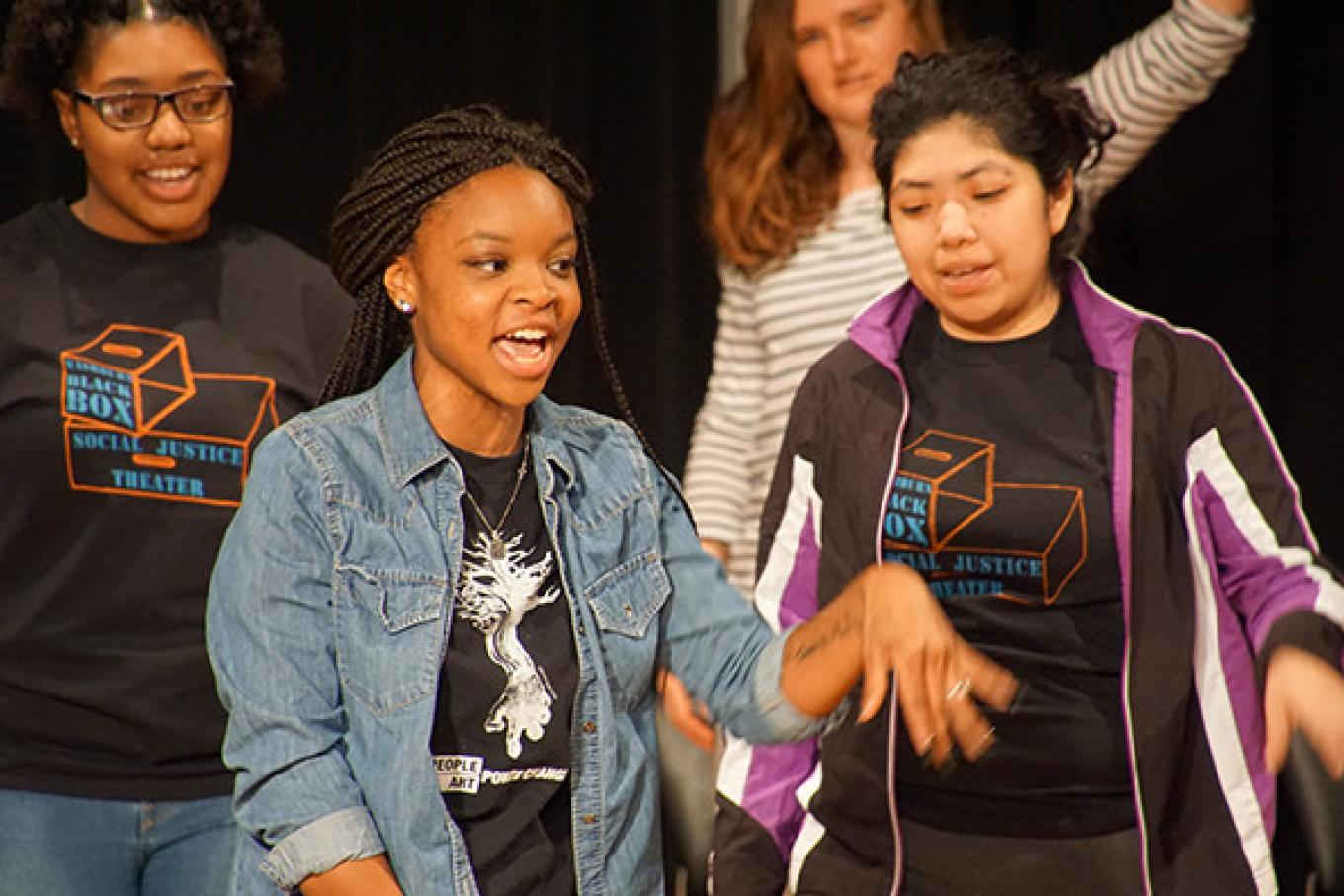What is youth development?
Youth Development is an interdisciplinary course of study, which means that we look at many kinds of sources in our study of youth. We also think about the social construction of youth, who young people are, and how to best support them. We emphasize youth voice, agency, and leadership.
Our faculty have expertise in a wide range of youth issues including civic engagement, indigenous youth, program evaluation, one on one skills, leading groups, experiential learning, and more.
Undergraduate degree
Earn a bachelor of science (BS) in youth studies. Declare your major as a freshman or CEHD student, or transfer into the Youth Studies undergraduate program.
Undergraduate minors
We offer three undergraduate minors to all current University of Minnesota undergraduates, including youth studies.
Master's in youth leadership development
Become a leader in the youth development field. Learn how to use research and evaluation to facilitate youth development programs for community organizations.
What you'll study
This is a interdisciplinary program that explores the social construction of youth and our responses. In the Youth Studies program you will:
- Learn a myriad of theories about young people including: cultural, political, sociological, phenomenological, biopsychological, and historical perspectives of youth
- Identify and interrogate the ideas and ask increasingly complicated questions about young people and what is known about them
- Reflect on your own experiences of being a young person and your own youthhood
- Engage and learn about the everyday lives of youth
- Leave prepared to imagine and engage in a range of youthwork practices and professional spaces
- Graduate with a background in designing innovative youth interventions and evaluation and research methods to explore what these create for young people and the communities they live in
Quote from Andréa Carroll-Franck, MEd in YDL '13
I chose the YDL program for the flexibility it offered. YDL is really about reshaping how to approach and think about youth work, and giving us the skills we need to affect change on behalf of and with young people in our communities.
Experiential learning, inside and outside the classroom
Our classes provide interactive spaces, reliant on curiosity, action, dialogue, experience, critical reflection and collaboration. We believe that learning happens inside and outside of the classroom and that learning isn’t a one-way street.
In the Youth Studies program, you will be in communities and communities will be in the classroom; you will be putting what you've learned to work in projects like: community-engaged learning, university-community professional development partnerships, and evaluation of programs with and for youth.

Students in a youth studies class.


Students canoeing on Lake Bde Mka Ska in an experiential learning class.


Students participating in a theater class.

Youth studies faculty
Molly Rojas Collins
Director of Undergraduate Studies; Senior Teaching Specialist
Ross VeLure Roholt
Associate Professor; Director, Youth Development Leadership Program
Katie Johnston-Goodstar
Associate Professor